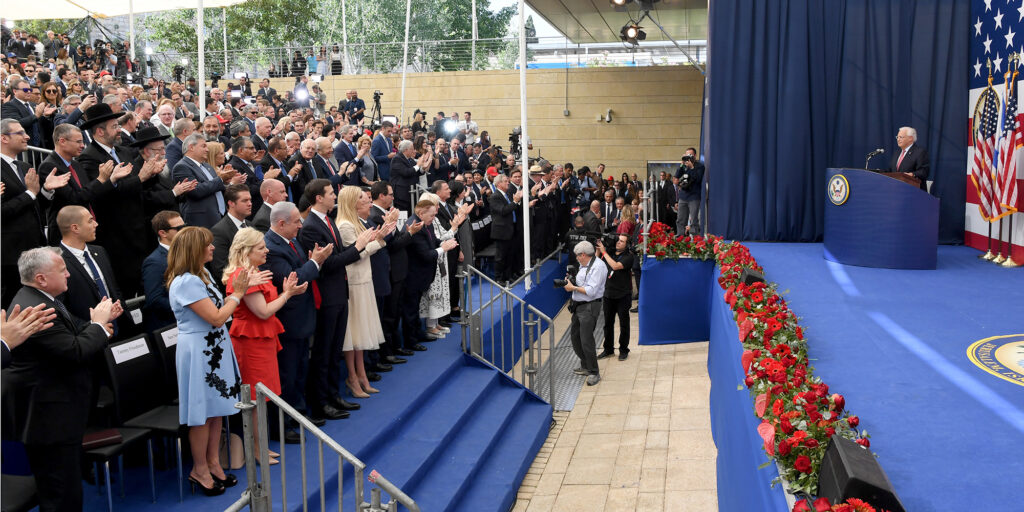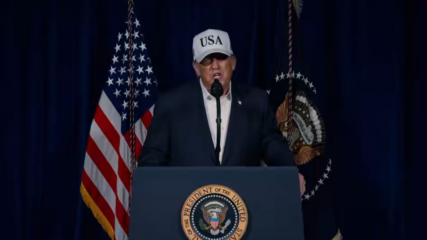May 14, 2018
On the 70th anniversary of Israel’s Declaration of Independence, President Donald Trump fulfills a campaign promise and moves the U.S. Embassy from Tel Aviv to Jerusalem.
Although Israel has made Jerusalem its capital since 1949, few nations have recognized that claim. The small number that ever had their embassies in Jerusalem have long since joined the rest of the international community and moved them to Tel Aviv, even though their diplomats must regularly travel to Jerusalem to do business with the Israeli prime minister, president, Foreign Ministry or Knesset.
U.N. General Assembly Resolution 181, the partition plan approved in 1947, called for Jerusalem to become a corpus separatum, or a city with no sovereign affiliation. That international jurisdiction was never established, however, and from the start of the War of Independence in 1948 until the outbreak of the Six-Day War in 1967, the western portion of the city was under Israeli control, and the eastern portion, including the Old City and holy sites, was under Jordanian control. Israel captured the rest of Jerusalem while driving Jordanian forces across the Jordan River in the June 1967 war and annexed eastern Jerusalem, which is considered by many to be occupied Palestinian territory and the possible capital of a future Palestinian state.
Although the United States has never recognized Israel’s annexation of eastern Jerusalem, Congress in 1995 passed the Jerusalem Embassy Act, calling for the move of the U.S. Embassy to an undivided Jerusalem by 1999. Presidents Bill Clinton, George W. Bush and Barack Obama each made campaign promises to move the embassy to Jerusalem, but each also took advantage of a provision in the 1995 act that allowed the president to decide every six months that the embassy move had to be postponed for reasons of national security. Trump also postponed the change of location during his first year of office, then announced his intention to make the move. His decision is opposed by the Palestinians and by other world leaders, and almost all nations keep their embassies in Tel Aviv.









